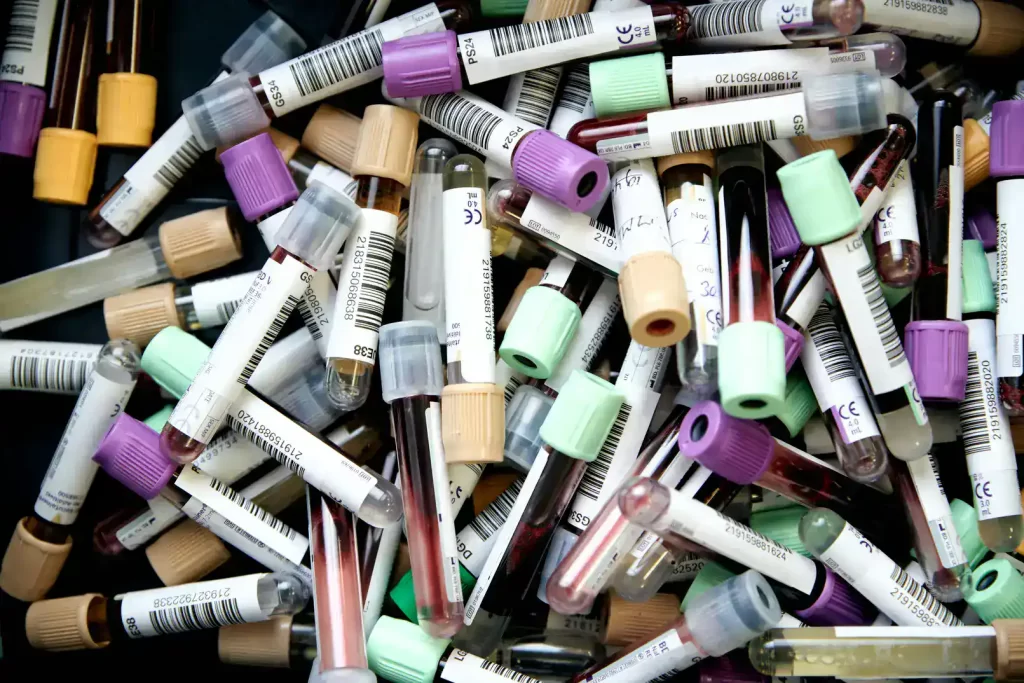A Pathway To Early Detention and Intervention
Introduction
Dementia poses a significant global health challenge, with an increasing prevalence among aging populations worldwide. Early detection of dementia is crucial for timely intervention and management to improve patient outcomes. While conventional diagnostic methods rely on cognitive assessments and neuroimaging, emerging research suggests that blood tests hold promise as non-invasive and accessible tools for predicting dementia risk. This comprehensive analysis explores the evolving landscape of blood-based biomarkers and their potential in predicting dementia onset, progression, and response to treatment.
Understanding Dementia and its Diagnostic Challenges
Dementia encompasses a spectrum of neurodegenerative disorders characterized by progressive decline in cognitive function, including memory, reasoning, language, and problem-solving abilities. Alzheimer’s disease (AD) is the most common form of dementia, accounting for approximately 60-70% of cases, followed by vascular dementia, Lewy body dementia, and frontotemporal dementia, among others.
The diagnostic process for dementia typically involves clinical evaluation, neuropsychological testing, and neuroimaging modalities such as magnetic resonance imaging (MRI) and positron emission tomography (PET). However, these methods may be costly, invasive, and limited in their ability to detect early pathological changes before clinical symptoms manifest.
The Promise of Blood-Based Biomarkers
Blood-based biomarkers offer a minimally invasive and cost-effective approach to dementia risk prediction and monitoring. These biomarkers encompass a diverse range of molecules, including proteins, lipids, metabolites, and nucleic acids, that reflect underlying pathological processes in the brain.
Recent advancements in analytical techniques, such as mass spectrometry, immunoassays, and next-generation sequencing, have enabled the identification and quantification of blood biomarkers associated with dementia pathology. These biomarkers hold potential for early detection, differential diagnosis, disease staging, prognostication, and monitoring treatment response in individuals at risk for dementia.
Exploring Blood-Based Biomarkers for Dementia Prediction
Amyloid Beta and Tau Proteins
Amyloid beta (Aβ) and tau proteins are hallmark pathological features of AD. Elevated levels of Aβ42 and decreased Aβ42/Aβ40 ratios in blood plasma have been associated with increased risk of AD and cognitive decline. Similarly, elevated levels of total tau (t-tau) and phosphorylated tau (p-tau) proteins are indicative of neurofibrillary tangle formation and neurodegeneration in AD.
Neuroinflammatory Markers
Neuroinflammation plays a crucial role in the pathogenesis of dementia. Blood-based biomarkers of inflammation, such as C-reactive protein (CRP), interleukin-6 (IL-6), and tumor necrosis factor-alpha (TNF-α), have been implicated in neuroinflammatory processes and cognitive decline.
Neurotrophic Factors
Neurotrophic factors, including brain-derived neurotrophic factor (BDNF) and insulin-like growth factor-1 (IGF-1), support neuronal survival, synaptic plasticity, and cognitive function. Reduced levels of BDNF and IGF-1 in blood have been associated with increased risk of cognitive impairment and dementia.
Lipid Profile
Alterations in lipid metabolism have been linked to dementia pathology. Dyslipidemia, characterized by elevated levels of total cholesterol, low-density lipoprotein cholesterol (LDL-C), and triglycerides, and decreased levels of high-density lipoprotein cholesterol (HDL-C), have been implicated in cerebral amyloid deposition, neuroinflammation, and vascular dysfunction.
Metabolic Markers
Metabolic dysregulation, including insulin resistance, glucose intolerance, and dyslipidemia, contributes to dementia risk. Blood-based markers of metabolic function, such as fasting glucose, insulin, hemoglobin A1c (HbA1c), and lipid profile, may serve as early indicators of cognitive decline and dementia progression.
Challenges and Future Directions
While blood-based biomarkers hold promise for dementia prediction, several challenges need to be addressed to facilitate their clinical translation. Standardization of sample collection, processing, and analytical methods is essential to ensure reproducibility and reliability across studies. Moreover, longitudinal cohort studies are needed to validate the diagnostic accuracy, predictive value, and clinical utility of blood biomarkers in diverse populations.
Furthermore, the development of multiplex assays and machine learning algorithms may enable the integration of multiple biomarkers into composite risk scores for more accurate dementia prediction. Collaborative efforts between researchers, clinicians, industry partners, and regulatory agencies are essential to accelerate the translation of blood-based biomarkers from bench to bedside.
Conclusion
In conclusion, blood-based biomarkers hold immense potential for predicting dementia risk and monitoring disease progression. By elucidating underlying pathological processes, these biomarkers offer insights into early disease mechanisms and facilitate timely intervention and personalized treatment strategies. While challenges remain in their clinical implementation, ongoing research efforts are poised to transform dementia care by harnessing the predictive power of blood tests. Embracing a multidisciplinary approach and fostering collaborative partnerships will be instrumental in realizing the full potential of blood-based biomarkers in the fight against dementia.
Thank you for taking the time to explore Kingwood Memory Care & Assisted Living. We’re committed to providing compassionate and personalized care for individuals with memory-related challenges. If you have any questions or would like to learn more about our services, please don’t hesitate to reach out to us at 281.892.1400 or via email at info@kingwoodmemorycare.com. We’re here to support you and your loved ones on this journey.





